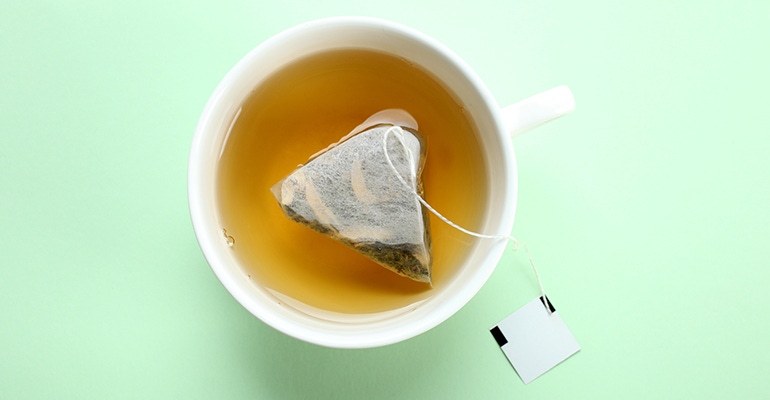Each day at 5 p.m. we collect the five top food and supplement headlines of the day, making it easy for you to catch up on today's most important natural products industry news.
September 26, 2019

Tea now comes with a side of billions of microplastics per cup
Researchers at McGill University have discovered that the PET-based, “silken,” pyramid-shaped tea bags that have risen in popularity over recent years introduce billions of plastic particles into hot water when steeped. Although scientists have yet to prove that microplastics are damaging to human health, the amount of microplastics found in these beverages far exceeded scientists’ expectations. Read more at Fast Company…
Big Food rethinks farming to fight a lack of crop diversity
Influential companies such as Google, Nestle, L’Oreal and Danone will be working together in a new initiative to promote crop diversity that will help protect the future food system. Danone’s CEO stated that big food companies on a global scale are reliant on too few species of crops, which could prove extremely dangerous should the these species begin to fall prey to climate change, pests or other malaises. Read more at Bloomberg…
Fish oil can ‘significantly’ reduce risk of heart attacks, study finds
A recent 26,000 person study on the benefits of vitamin D and omega-3s reveals that omega-3 fatty acids can have a serious impact in terms of lowering one’s overall heart attack risk. Vitamin D was linked to lowering study participants’ risk of death by cancer. Read more at The New York Post…
Plant-based egg maker gains from non-animal food buzz but lower costs key
Plant-based food startup JUST views lowering its costs to compete with conventional products as the necessary next step to get mainstream consumers to commit to its alternative protein products. The company is launching in Europe soon, which Chief Executive Josh Tetrick hoping the move will help JUST gain a bigger share in the $260 billion egg market. Read more at Reuters…
‘What they put on the fields contaminates our water’: Iowa’s pollution problem
Many towns in rural Iowa are surrounded by corn and soya bean fields, and nitrates from the synthetic fertilizers that are added to them to drive production are finding their way into the local drinking water. Studies by various organizations have linked higher-than-average rates of nitrate to an increase in certain cancers and birth defects. Read more at The Guardian…
You May Also Like


